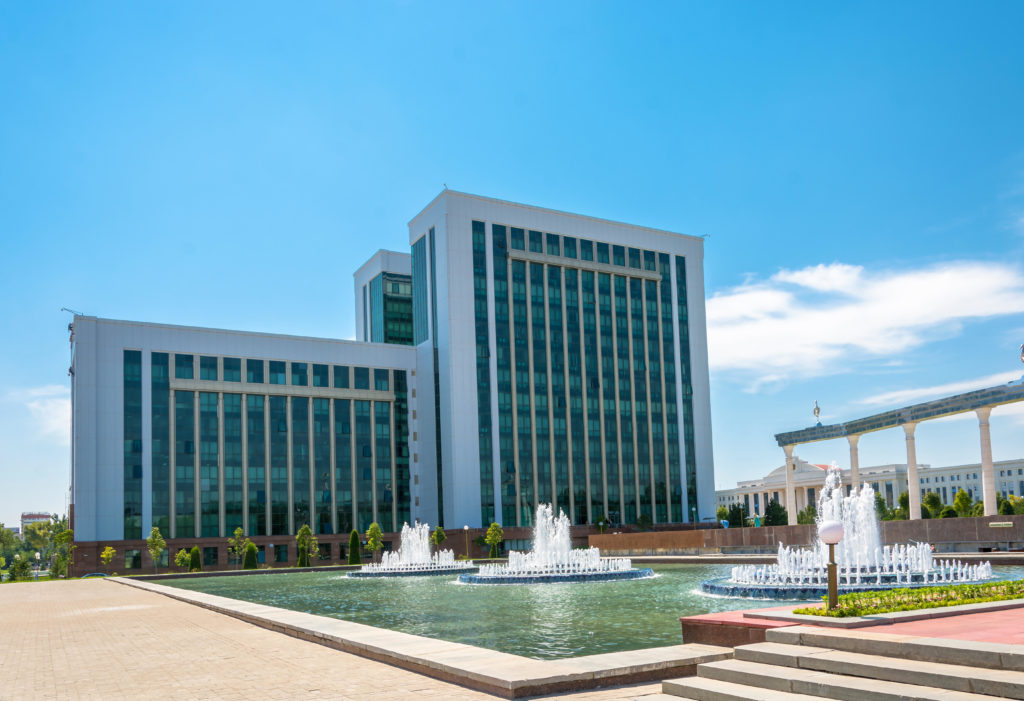TASHKENT
Uzbekneftegaz, the state-owned oil and gas company, has inked financial support agreements with Deutsche Bank, Landesbank Baden-Württemberg, and Landesbank Hessen-Thüringen Girozentrale (Helaba) to expand production capacity of the Shurtan Gas Chemical Complex.
The cooperation agreements envisage the allocation of 1.1 billion euros of capital to finance the expansion of the Shurtan Gas Chemical Complex’s (“Shurtan GCC Upgrade Project”) production capacity. The agreements were signed with Deutsche Bank – for 500 million euros, Landesbank Baden-Württemberg – for 300 million euros and Landesbank Hessen-Thüringen Girozentrale (Helaba) – also for 300 million euros.
As the Shurtan GCC Upgrade Project is being financed on an export finance principle, with no state guarantees, the participation of European banks is a significant endorsement of Uzbekistan’s attractiveness as an investment, Uzbekneftegaz said in a statement.
The total cost of the project is $1.8 billion, of which $1.2 billion will be contributed by a consortium of foreign banks and financial institutions and $600 million – from Uzbekneftegaz.
“Today’s announcement is yet another example of high-quality, international investment capital being allocated to Uzbekistan to help finance our exciting energy reforms,” said Alisher Sultanov, Uzbekistan’s energy minister. “We have set ambitious energy targets, and activated strategies at great speed to achieve those targets, but attracting substantial international capital is one of the best measures of our progress.”
The funds will be raised under the insurance coverage of Euler Hermes (Germany), SACE (Italy), Atradius (Netherlands) and other European export credit agencies, he said.
A further agreement was signed at the economic forum between Uzbekneftegaz JSC and the New York-based international law firm White & Case LLP, which has many years of advisory experience in Uzbekistan on investment projects and project financing.
The resource-rich Central Asian nation of 34 million unveiled an ambitious economic reform programme five years ago, since Shavkat Mirziyoyev became the president. He opened up the country to foreign trade and investment, scrapped monetary and other administrative burdens for business.
Mirziyoyev also prioritised reforming the country’s energy system by opening up it to foreign investors offering public-private partnership in the power sector and promised to create all necessary conditions by 2025 that private investors would be able to produce up to 50 percent of the country’s electricity.

